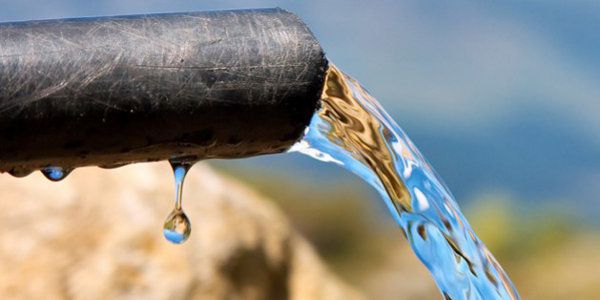
Potable water must reach all
It is generally believed the world over that no one must be denied access to water for any reason because it holds the key to life.
This is why a visitor to a home is first given water in many African cultures and in times of scarcity women and children especially go all lengths, including travelling long distances, to get potable water for their households.
Advertisement
It is also considered an act of wickedness for a person to refuse water to someone who is thirsty or attempt to sell water at an outrageous price to a person in need of the life-giving liquid.
Today, March 22, 2019 is Water Day, to be marked globally to drum home the importance of water and the need to ensure that everyone has equal access to it, no matter one’s colour or creed.
This year’s theme: “Leaving no one behind: Water is a human right”, an adaptation of the central promise of the 2030 Agenda for Sustainable Development that ‘as sustainable development progresses, everyone must benefit’, puts it bluntly that water must reach everyone at all cost.
The UN General Assembly and the Human Rights Council, in 2010, recognised “the right to safe and clean drinking water and sanitation as a human right that is essential for the full enjoyment of life and all human rights” and as part of binding international law.
The human right to water entitles everyone, without discrimination, to sufficient, safe, acceptable, physically accessible and affordable water for personal and domestic use. This includes water for drinking, personal sanitation, washing of clothes, food preparation and personal and household hygiene.
Fortunately, Ghana has done so much in the area of the provision of water for its citizens and ensured 82 per cent coverage before the close of the Millennium Development Goals (MDGs) period in 2015. Nonetheless, that left 18 per cent of the population, approximately 5.3 million of the current 29.6 million inhabitants, without access to potable water.
The situation, according to industry experts, is even made worse by the combined effect of not addressing sustainability issues in the provision of water (only about 71 per cent of rural water supply facilities are functional at any given time), which results in the exclusion of one-third of the population from accessing improved water at any given time.
Further, the latest Multi Indicator Cluster Surveys (MICS 2017/18) results indicate that the deterioration in drinking water quality is widespread across the country, with 48 per cent contamination at the source and 76 per cent at the point of use.
Marginalised groups – women, children, refugees, indigenous and disabled people and many others – are also often overlooked and sometimes face discrimination as they try to access and manage the safe water they need.
Ghana has earned the admiration of all by not only achieving the MDG target for water but also surpassing the milestones. However, much more remains to be done, as pockets of areas remain unserved and under-served with safe water.
Also, various disparities and inequalities exist among the people who have access to water and all these must be tackled, so that no Ghanaian’s right with respect to access to water is abused.
While urging the authorities to ensure the provision of water for the benefit of all Ghanaians, we appeal to citizens to desist from any act that will result in shortage of water in any part of the country.



